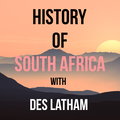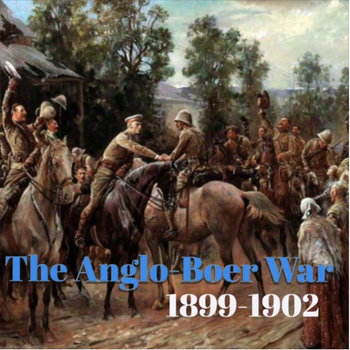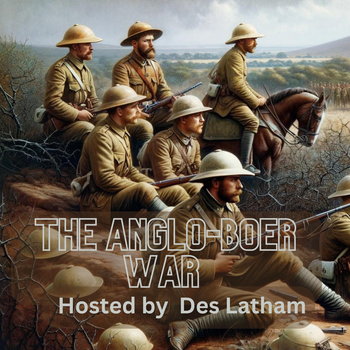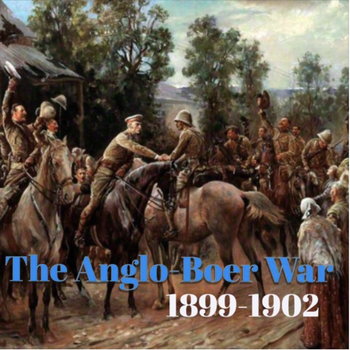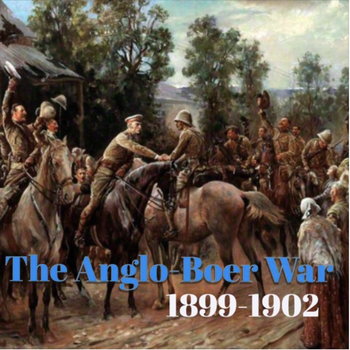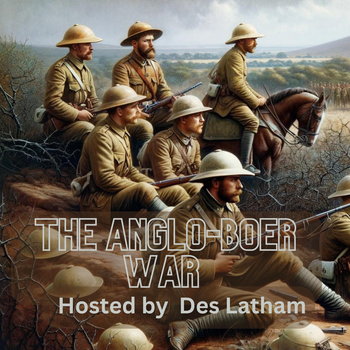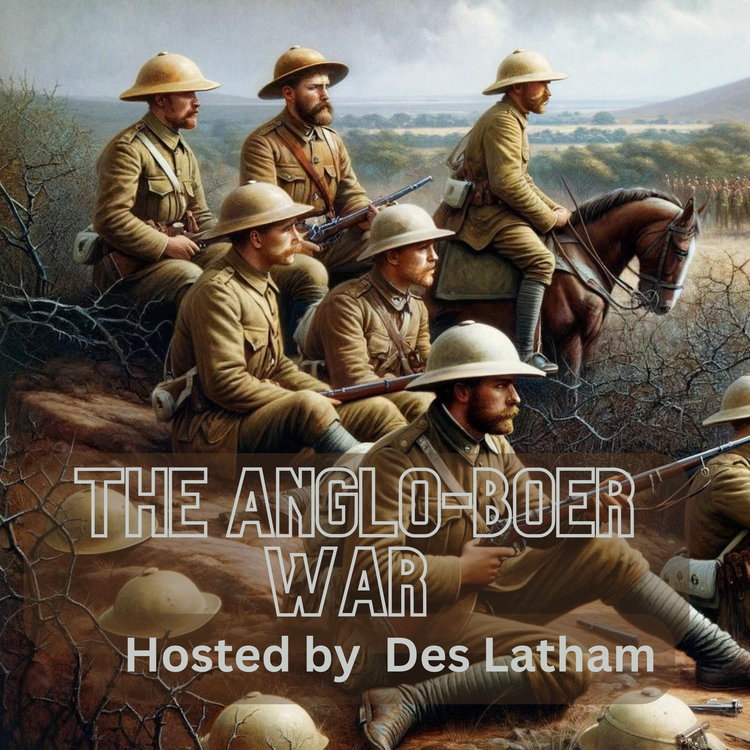
Episode 92 - Methods of barbarism and Magistrate Kidwell signs an oath of neutrality
Loading player...
This week we spend some time in England as the political fallout caused by the Anglo-Boer war grows, and meet an unusual man called Magistrate Kidwell.
But first, Emily Hobhouse finally presented her report on the Concentration Camps to the English public - after government officials gave her the cold shoulder.
While she was determined to be heard and for the government to act, the reality is the British political leadership was equally determined to force the Boers to surrender and believed that the deaths of civilians was part of what in modern discourse is called collateral damage. More importantly, they were censoring all news from South Africa in an effort to hide just how many civilians were dying.
Hobhouses' fifteen page report to the Committee of the Distress Fund was first circulated amongst the members before being released to the public in early June 1901. Her conclusion about the camps was they were cruel and should be abolished. She also warned that the black population was beginning to take advantage of the ongoing chaos in South Africa and that would bode ill for any future British governor.
This was the report coupled with her personal diary and testimony, that sent a shock wave through the pro-Boers in England. Lloyd George intensified his attack on the government in a debate on the 18th June. The report also dislodged Opposition leader Campbell-Bannerman from the tight-rope he’d been walking between two different liberal views in Britain at the time, forcing him into an increasingly radical position.
On the 14th June Campbell-Bannerman had attended a liberal party dinner at the Holborn Restaurant where he publicly said he was sickened by the policy of sweeping women and children into concentration camps, as the Spaniards had done in Cuba. There were overtones of race here, how the white women were being treated like mulatoos and the blacks of Cuba, although he didn’t quite put it that way.
He raged
“A phrase is often used that war is war but when one comes to ask about it one is told that there is no war going on - that is not war…”
The crowd in the restaurant laughed.
“when is war not war?” he asked those assembled in Holborn. “When it is carried on by methods of barbarism in South Africa…”
That phrase resonated throughout the world at the time.
Also in this podcast, the curious tale of Magistrate Kidwell who surrendered after being attacked by the Boers in the village of Jamestown. He promptly took an oath of neutrality to save two black spies from being shot by the Boers. We'll also hear more from Johanna van Warmelo at Irene and have an update from the Boer leadership gathering at Waterval near Standerton which sets a new course, ordering Jan Smuts to launch an urgent invasion into the Cape Colony.
But first, Emily Hobhouse finally presented her report on the Concentration Camps to the English public - after government officials gave her the cold shoulder.
While she was determined to be heard and for the government to act, the reality is the British political leadership was equally determined to force the Boers to surrender and believed that the deaths of civilians was part of what in modern discourse is called collateral damage. More importantly, they were censoring all news from South Africa in an effort to hide just how many civilians were dying.
Hobhouses' fifteen page report to the Committee of the Distress Fund was first circulated amongst the members before being released to the public in early June 1901. Her conclusion about the camps was they were cruel and should be abolished. She also warned that the black population was beginning to take advantage of the ongoing chaos in South Africa and that would bode ill for any future British governor.
This was the report coupled with her personal diary and testimony, that sent a shock wave through the pro-Boers in England. Lloyd George intensified his attack on the government in a debate on the 18th June. The report also dislodged Opposition leader Campbell-Bannerman from the tight-rope he’d been walking between two different liberal views in Britain at the time, forcing him into an increasingly radical position.
On the 14th June Campbell-Bannerman had attended a liberal party dinner at the Holborn Restaurant where he publicly said he was sickened by the policy of sweeping women and children into concentration camps, as the Spaniards had done in Cuba. There were overtones of race here, how the white women were being treated like mulatoos and the blacks of Cuba, although he didn’t quite put it that way.
He raged
“A phrase is often used that war is war but when one comes to ask about it one is told that there is no war going on - that is not war…”
The crowd in the restaurant laughed.
“when is war not war?” he asked those assembled in Holborn. “When it is carried on by methods of barbarism in South Africa…”
That phrase resonated throughout the world at the time.
Also in this podcast, the curious tale of Magistrate Kidwell who surrendered after being attacked by the Boers in the village of Jamestown. He promptly took an oath of neutrality to save two black spies from being shot by the Boers. We'll also hear more from Johanna van Warmelo at Irene and have an update from the Boer leadership gathering at Waterval near Standerton which sets a new course, ordering Jan Smuts to launch an urgent invasion into the Cape Colony.
